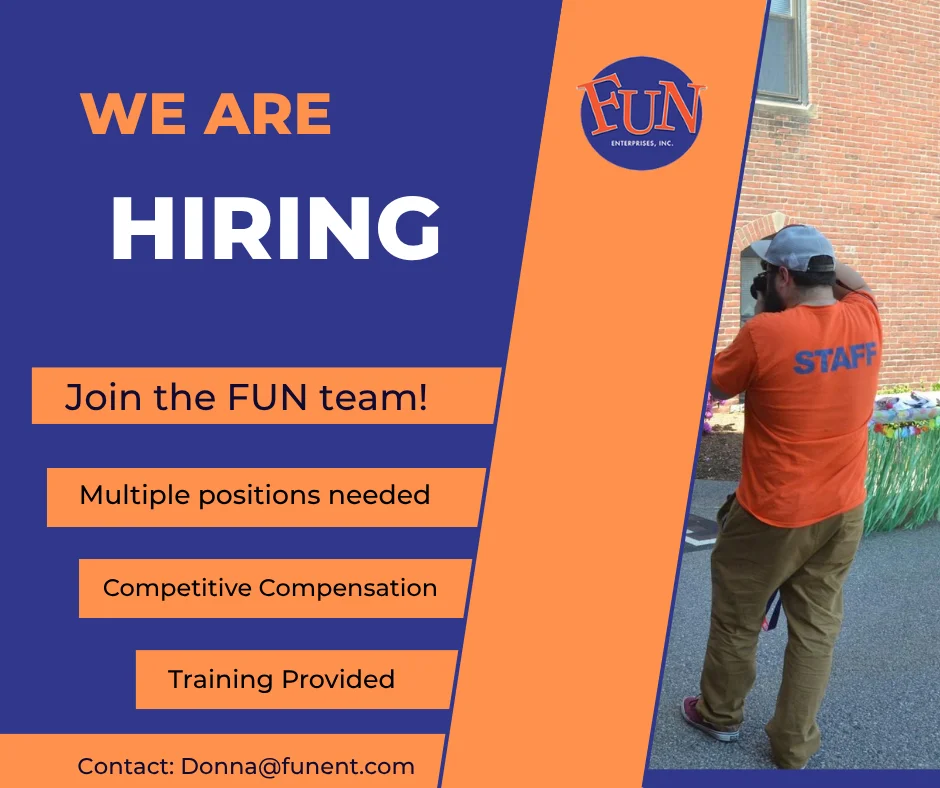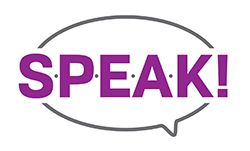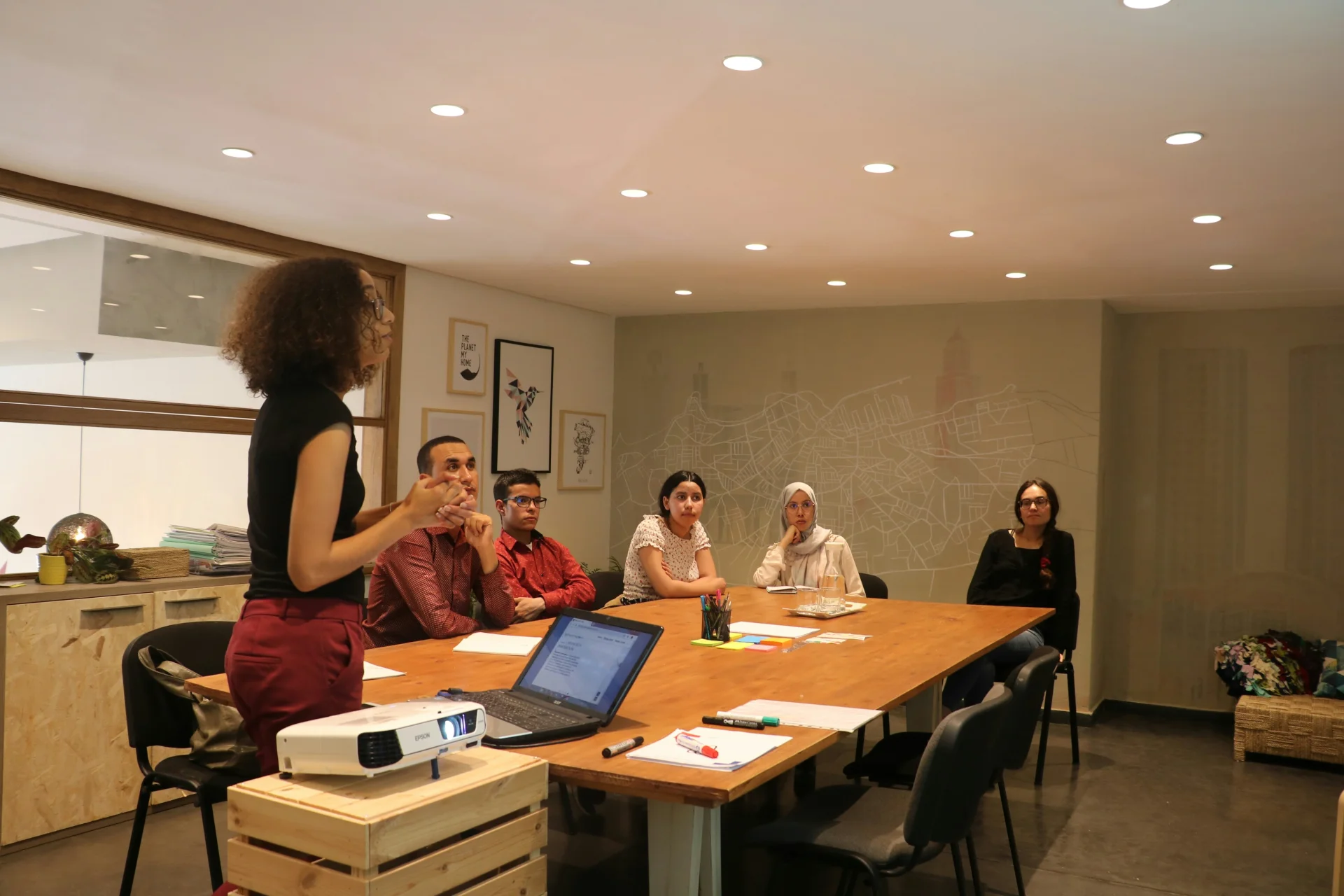July 2025 Newsletter
July 1st, 2025

Welcome to the Fun Enterprises Newsletter
July 2025
Get this bi-monthly newsletter directly in your inbox!
Kids and Family
MA Fireworks: 4th of July Fireworks Displays (by town) 2025
Visit New England's Events Calendar - 2025
Four Epic New England Fourth of July Celebrations
Find the Hidden Object
Can you find the hidden caterpillar? Look closely, this is a tough one!

Anecdotes and Advice from AC

AC Anders, CMP.
VP of Corporate Events
Have a question for AC?
Please reach out to directly at [email protected] or
617-838-5691
Think Like a Guest, Lead Like a Pro: Better Events Start Here

No matter what type of event you're planning—a conference reception, employee appreciation day, campus activity, or family outing—success comes down to more than just logistics. It’s about creating an experience that meets everyone’s needs: the guests attending, the people behind the scenes, and those responsible for pulling it all together.
Whether you’re a professional event planner, part of an HR team, leading a volunteer committee, or simply planning something personal, it’s easy to overlook key details while juggling the big picture. At Fun Enterprises, we’ve worked thousands of events across industries, and we’ve seen how a few avoidable missteps can make a big difference.
Here’s a look at some of the most common mistakes—through the eyes of the people most affected.
From the Organizer’s Perspective:
“I wanted this to go smoothly—but now I’m the one everyone’s coming to with problems.”
Whether you’re the client, the boss, or the family member leading the charge, it’s easy to feel overwhelmed when things don’t go as planned.
- Inconsistent Communication: When updates are unclear or infrequent, stress builds. Organizers are often left chasing details or answering questions they shouldn’t have to.
- Unrealistic Promises: It’s tempting to try to please everyone, but overcommitting can backfire if the end result doesn’t match expectations.
- Missing the ‘Why’ Behind the Event: Planning without a clear goal—team bonding, donor recognition, celebration—can result in a disjointed experience.
- Budget Blind Spots: Extra costs, no matter how small, can erode trust and cause frustration—especially with leadership or committees to answer to.
Prompt to consider: “If I were in charge, would I feel confident and supported—or stuck putting out fires?”
My two cents: Don’t sweat the small stuff. Micromanaging your team while the event is running smoothly is a fast track to stress. If your guests are enjoying themselves—even if things don’t look exactly like your original vision—take a breath and let it go. Flexibility is your best friend on event day.
From the Guest’s Perspective:
“I took time out to be here—was it worth it?”
Guests may not say it out loud, but they’ll remember how the event made them feel.
- Poor Flow or Long Waits: Long lines or crowded spaces can quickly kill engagement.
- No Clear Direction: Guests should never have to guess where to go or what’s next.
- Comfort Overlooked: Are there enough chairs? Shade? Water? Basic needs can make or break an experience.
- Mismatched Entertainment: Booking something just because it’s available doesn’t mean it’s right for your audience.
Prompt to consider: “Would I feel welcomed, included, and comfortable if I were a guest at this event?”
My two cents: Always remember the guests’ basic needs—food, water, comfort, and safety. No matter how dazzling the setup is, if people can’t get a drink or bite to eat or don’t have a place to sit, they won’t be comfortable. Offering passed hors d'oeuvres and beverages on arrival is a nice touch—but don’t place them right at the entrance, where they can create a bottleneck.
From the Staff or Performer’s Perspective:
“We’re here to help you shine—if we’re given the right tools.”
Whether it's your entertainment team, caterers, or support staff, their experience affects the entire event.
- No Clear Contact or Timeline: Without clear communication, tasks fall through the cracks.
- Tight Set-Up or Load-In Windows: Last-minute scrambling affects quality and morale.
- Skipping the Basics: Staff often get overlooked when it comes to breaks, meals, or even restroom access.
- Lack of Day-Of Communication: Someone needs to be the go-to for quick questions and decisions.
Prompt to consider: “If I were working this event, would I feel set up for success or scrambling to keep up?”
My two cents: We could write a book on the times we’ve arrived and weren’t given what was outlined in our production riders. These requests—tables, chairs, electrical access—aren’t “nice-to-haves,” they’re necessary to make the program run smoothly.
Examples:
- Keeping a caricature artist outside in the rain—their paper and tools don’t work wet, and neither do they.
- Asking a performer to arrive two hours early, perform for four hours, and not providing access to food or water—this leads to burnout and poor performance.
- Underestimating attendance and hoping the caterer can “make it work”—you’re setting up for disappointment.
Final Thoughts
Whether you’re planning a company celebration, a school event, or a backyard gathering, the best events are those where everyone—from guests to staff to leadership—feels considered. At Fun Enterprises, we believe that thoughtful planning starts with empathy: putting yourself in everyone’s shoes. When you do that, great events aren’t just possible—they’re guaranteed.
Sam's Gluten-Free Picks
Finding True Connection in the First Year

by Dave Zamansky
Everybody says it. My grandfather said it when I got into college at the University of New Hampshire. As first-year students are about to make the transition from high school onto our campuses, they are going to hear the same thing:
- College is going to be the best four years of your life.
- You are going have the best friends you have ever had.
Our students believe this; not only that, they think all of it will happen in a snap. At orientation, students arrive with the assumption that best friends and community should be a given for the next four years. This mindset can be a major setback for many students who don't find that friend or their community and feel that they have done something wrong. Orientation can help by being honest with its goals:
- Make sure students feel that they made the best choice they could ever make in coming to this institution.
- Educate students on connection, resources, and survival at the college level.
Orientation: Excitement. Experiential activities. Inspirational speakers. Powerful discussions in their orientation groups. Preparation for the college adventure has begun. Our orientations should add more to the experience helping students understand that a sense of belonging takes time and they are not alone; college doesn't click right away for most students. For this one to two day experience, students are at the acquaintance stage that may not turn into long lasting friendships. An interesting article in 2018's The Journal of Social and Personal Relationships called “How many hours does it take to make a friend?” gave these statistics:
- <10 hours = Acquaintance
- 30 hours = Casual Friend
- 50 hours = Friend
- 140 hours = Good Friend
- 300 hours = Best Friend
Making friends is hard work. Three hundred hours is a LONG time, but if we think of our best friends and how long it took to get to that status, we would know it took much time and energy to gain trust, respect, support, and the ability to give each other honest feedback. Finding your community could involve joining a student organization during the first two months of school, being a part of a study group that meets regularly, having daily exercise partners at the gym, going to similar campus entertainment events as others, and any other opportunities that are advertised geared toward connection. This also involves the help along the way from our professional faculty, staff, and student leaders such as hall directors, advisors, professors, resident assistants, orientation leaders, and club presidents. The truth is that college students can have an incredible four years and make long-lasting friendships. They just need to give themselves some grace, patience, guidance, and time to find their place.
Why Summer Is the Perfect Time for Skill-Building
by Debra Holland
Being the unofficial "Jack of all trades" in our office, I've had to learn new skills on an ongoing basis. Anything that doesn't fall under someone else's job description usually gets passed to me, within reason. Sometimes learning new skills or figuring out how to do something is a quick google search and some reading, and other times it's a webinar or podcast on the subject. Whatever way things go, I'm always afforded the time and materials I need to get the job done. I actually enjoy the challenges that come with figuring out new things. In 12 years at Fun, I now have good working knowledge of corporate finance, marketing, social media, HR, websites and many other topics. I'm even the systems administrator for our Salesforce, which took a lot of studying! As Ken often says, I'm a life long learner and I am fortunate to work for a company that supports continuous skill building and education. One of the things that we are seeing today is that companies are downsizing, which means that employees that are left are being tasked with more and more and sometimes need additional skills to do their job.
Although summer may bring a slower pace for some companies, that doesn’t mean growth has to take a vacation too. In fact, the quieter rhythms of the season create an ideal opportunity to refocus, recharge, and yes, level up. Summer isn't quiet for all companies, so if your summer is the busy season, then find the time during slower seasons, because investing time in your employees is profitable.
While many teams may be managing vacation schedules and enjoying the more relaxed vibe, the season also opens a window for development that’s harder to find during the hustle of fall and winter. So how can you ride this seasonal wave toward progress?
Here’s why summer is a smart time to invest in learning and skill-building—and how to make the most of it.
1. Fewer Distractions = More Focus
With fewer big deadlines, offsite meetings, or major launches on the calendar, summer provides a rare moment of calm. That makes it the perfect time for employees to dig into new material, whether it’s a professional development webinar, a team workshop, or finally finishing that course they bookmarked in March.
Even micro-learning (think 15-minute lessons or podcasts) can spark big insights when minds are less cluttered.
2. Learning Feels Lighter in the Sunshine
Let’s face it, everything feels better when the sun is shining. Learning doesn’t have to be stuffy. Try hosting an outdoor training session, walking book club, or lunch-and-learn in the park. The more you connect learning to the season, the more memorable and enjoyable it becomes.
And don’t underestimate the impact of fun, engaging topics. Soft skills like communication, leadership, creativity, and self-awareness tend to flourish in relaxed settings.
3. Prep Now, Shine Later
What you invest in now will pay off when the pace picks up again in the fall. Employees who take the time to sharpen their skills, gain new tools, or stretch themselves professionally will be ready to hit the ground running after Labor Day.
It’s also a great time for managers to model continuous learning. Share what you’re reading, listening to, or working on. Your example can set the tone for a learning culture year-round.
4. Smarter Approach to Training
Studies have also shown that continuous, spaced-out training sessions lead to better long-term outcomes compared to one-off sessions packed with information. If you're planning a training or discussion topic with your team this summer, consider breaking it into smaller, focused segments. This approach allows learners to absorb and retain information more effectively. Recognizing that every team is diverse—with different learning styles and paces—this method ensures each person has the opportunity to process material in their own way. Slowing down not only supports comprehension but also allows for immediate application, which reinforces retention and encourages growth across the team. To make training effective, learners should be encouraged to put new skills into practice right away. As the old adage says, “use it or lose it.”
So, What Can You Do Right Now?
- Host a Summer Skills Series: A casual, 3-part workshop or speaker series keeps things simple and focused.
- Encourage Peer Learning: Have team members teach something they’re passionate about, professional or personal.
- Offer Flex Learning Fridays: Dedicate an hour each week to skill-building.
- Work with a Partner: Bring in outside experts for fresh energy and a turnkey experience.
Bottom line? Summer is more than a break in the calendar; it's a chance to grow in ways that don’t feel like work. So, catch the waves and help your team learn something new while the sun is shining. Because the best investment you can make, any time of year, is in your people.
And they're off...

by Ken Abrahams
For many families that watched or are about to watch their children graduate from high school, the question of what is next for said graduate has probably been answered. Some are headed to trade school or right into the work force, while others will take a “gap year” to identify and ponder what their options and next steps should be. There will be graduates continuing their educational pursuits, as well. For that group there are many options; take a full course load at a local or community college and live at home or head off to college in a different state, part of the country, or even elsewhere in the world will be very appealing to a segment of those recent graduates.
Whatever they decide to do, one thing is for certain, big changes are coming. That group of friends that they have spent the last 4 years or even longer with will now be flung far and wide. It is a time of new experiences, new scenery, and in many cases, new friends. This is not a new phenomenon, it has been happening for decades. Michael Miller, one of the speakers we represent, has been doing sessions for years for parents of students going to college about how to help make that transition. For some families or parents, it is hard to let go as they have been so involved in their kids’ lives for the better part of 20 years. Believe it or not, it is even harder for some students to make the transition.
My generation was ecstatic to leave the nest, head to college, and make their mark on the world. Times are much different now as are the students and their parents. Had you asked me or my friends who our best friends were, none of our parents would have made the list. We respected them, went to them for guidance, stayed away from them when we screwed up, and loved them, but they were not our friends. Today many students list their parents or at least one parent as a best friend and interestingly enough many parents list their kids as a best friend. Recently, I was reading a book and in the acknowledgements the author made a special point of thanking one of his best friends, his son. My kids mean the world to me, and I love them unconditionally, but they are not my best friends, they are my kids.
This changing dynamic has made the college separation different and, in some respects, more difficult. Michael’s session used to provide advice such as making sure to discuss things like family weekend and Thanksgiving break to make sure that the expectations are clear and everyone is aware of the dates of these things and when said student is expected to be home and available for family gatherings. Now, that is almost a moot point as parents and students often communicate daily or even multiple times during the day. Little is left to chance or unsaid. Conversations with my mother were often started with the phrase “Oh, you’re still alive,” on the rare occasion I called home.
Is this new dynamic healthy? I have no idea. Here are some thoughts on the subject. College is a great place to grow into the person you want to be. It is a relatively safe environment to build new relationships, make new friends, and go down paths you never thought you would try. There are a myriad of groups, clubs, and organizations that you can join, or at the very least visit, to see if they are a group for you. It is an ideal place to try things like theater, intramural sports, student government, residence hall government, an improve comedy troop, ultimate frisbee team, or even a Quidditch team, just like Harry Potter. Students that are encouraged to try new things and take different paths often have a more rewarding collegiate experience. They also often have more fun and find potential career options they never knew existed.
Not going to college, no problem, many of those same opportunities are available right at home or close by. If you are entering the workforce or attending a trade school there are opportunities there, new people to meet and new, wonderful experiences to be had. You will need to seek them out. If you have always wanted to get involved with theater, there are community theater groups that offer on stage or behind the scenes experiences, usually for all abilities. Volunteers are always needed for food pantries, senior centers, and organizations like Big Brothers and Big Sisters, but as I said above, you need to seek them out.
Parents, where do you fit in with all of this? Be supportive and encourage your child to get out of their comfort zone. If they are struggling do not suggest they quit, instead encourage them to stick with it, and try new things, if their first efforts are unsuccessful. Be present but not overbearing. Offer support but do not be afraid to let them fail or at the very least push through the adversity. This is an exciting time for both parents and students, make sure to enjoy it.


*Subject to Availability
Call 781-436-3187 or email
Ken Abrahams ([email protected]) for College/University Events
AC Anders ([email protected]) for Corporate/Private Events
Brainteasers

1. During what month do people get the least sleep?
2. Is the capital of Kentucky pronounced Louisville or Luee-ville?
3. A sundial has the fewest moving parts of any timepiece. Which has the most?
Math Riddles

1. How do you go from 98 to 720 using just one letter?
2. I am a three-digit number. My second digit is four times bigger than the third digit, and my first digit is three less than the second digit. What number am I?
3. Find the next number in the series 7645, 5764, 4576, ..........
Kim's Corner
Click the links below for some great ideas, recipes, and FUN!
Random Trivia

1. Which popular condiment was once sold as a medicinal cure for diarrhea?
2. Name either of the two U.S. states that makes it illegal to get married on a dare.
3. The unicorn is the national animal of which country?
Gardening

All the Gardening Tasks You Should Do in July
How to Protect Your Garden from Summer Pests and Diseases
Backyard design trends for 2025
Puzzle Answers:

1. Ketchup
2. Delaware and Colorado
3. Scotland
1. February, because it has fewer days
2. Neither, the capital of Kentucky is Frankfort.
3. An hourglass. It has thousands of grains of sand.
1. 90x8 = 720
2. 141
3. 6457 - The last number is moved to the front to make the next new number
Newsletter written and edited by
Debra Holland
July 2025
Thank you for visiting!





















